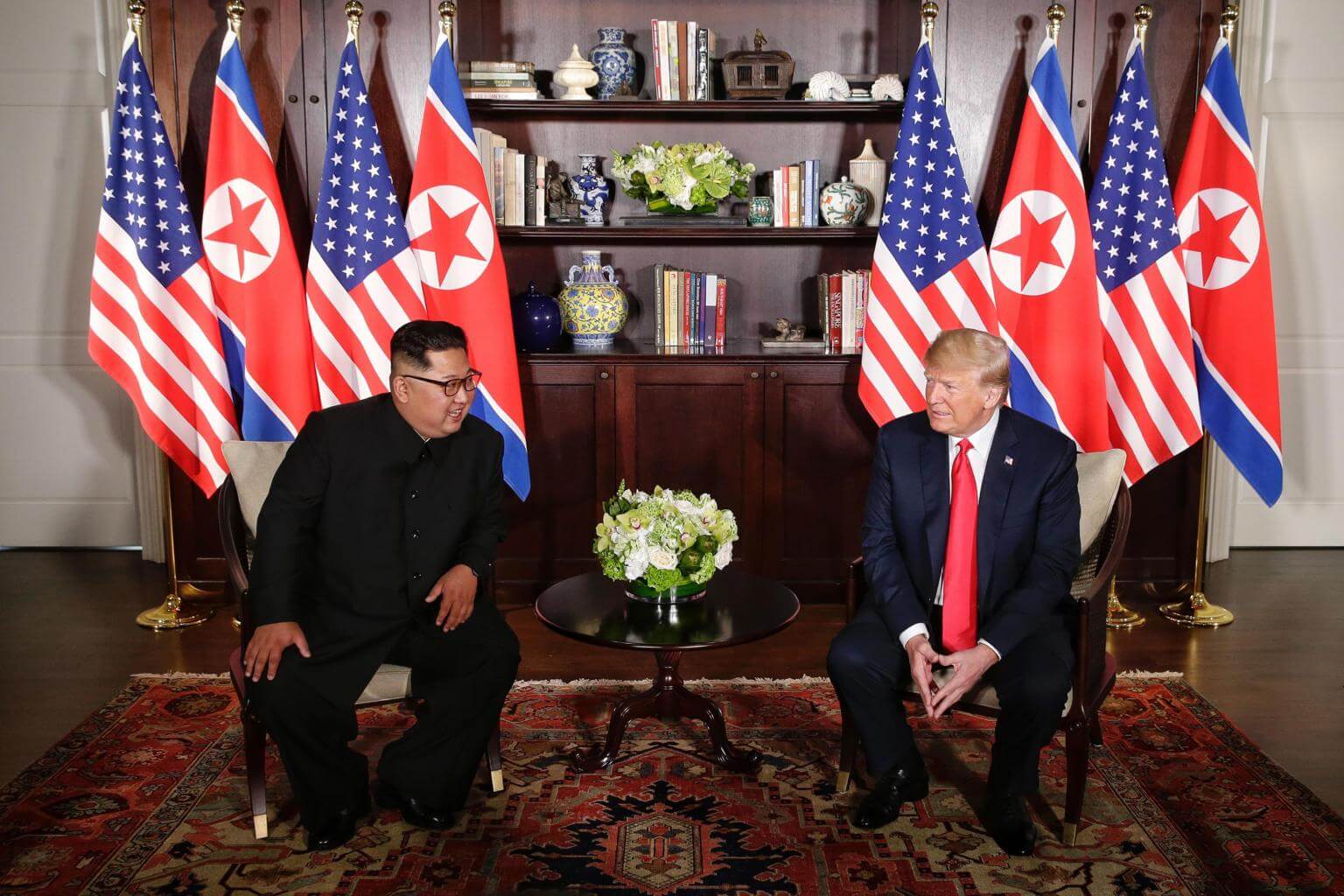Trump and Kim clash, via tweets and the state media
Sign up now: Get ST's newsletters delivered to your inbox

File photo of US President Donald Trump and North Korean leader Kim Jong Un during their meeting in Singapore, on June 12, 2018.
PHOTO: ST FILE
Follow topic:
WASHINGTON (NYTIMES) - North Korean state media criticised the United States over the weekend for "extremely provocative and dangerous military moves" in Pacific waters and warned that the diplomacy forged between the two countries' leaders during their Singapore summit in June could be in jeopardy.
The belligerent articles were the first official comments from North Korea since a frustrated President Donald Trump announced on Friday (Aug 24) that Secretary of State Mike Pompeo was cancelling his most recent plan to travel to Pyongyang, the North Korean capital.
Mr Trump's announcement, made in a series of tweets, was the first acknowledgement by the US President that the diplomatic process with North Korea had stalled.
He said the US had not been making "sufficient progress" on getting North Korea to halt or dismantle its nuclear weapons programme, and blamed China for the slow progress.
Some US officials and analysts in Beijing, however, have said China generally has adhered to a US-led economic sanctions plan against North Korea.
On Sunday, the Korean Central News Agency, the official state news agency of the government in Pyongyang, reported that US "special units" had flown 1,200km to the Philippines over Pacific waters.
It described the exercise as preparing for an "infiltration into Pyongyang", which could be done with a "change of direction".
The report also said the USS Michigan, a nuclear-powered ballistic missile submarine, had transported units of Green Berets, Delta Force and other elite soldiers in late July or early August from Okinawa, Japan, to a naval base in South Korea.
The news agency cited South Korean radio as its source, not any independent evidence. The Pentagon generally does not comment on operations of its special units.
In a statement on Monday, the State Department said Mr Pompeo spoke last week with the South Korean Foreign Minister Kang Kyung-wha, and the two "agreed that pressure must continue" until Pyongyang dismantles its nuclear weapons programme.
Mr Pompeo also appointed a special envoy, Mr Stephen E. Biegun, last week to oversee diplomacy with North Korea.
At his June meeting in Singapore with North Korean leader Kim Jong Un, Mr Trump promised to cancel military exercises between the US and South Korea, which surprised both the Pentagon and the South Korean government.
Since then, large exercises between the two allied nations have been paused. The US maintains about 28,500 troops in South Korea.
The Pyongyang news report did not provide details on the US military moves that North Korea was asserting had taken place.
It appeared to lay the foundation for blaming stalled diplomacy on US officials by accusing them of reneging on promises made at the summit.
The news agency cited a Sunday commentary in Rodong Sinmun, the official newspaper of the central committee of the Workers' Party of Korea, that said the "extremely provocative and dangerous military moves" would "mar the hard-won atmosphere of the peace on the Korean peninsula" and the dialogue and agreements that had come out of the summit.
The commentary said that "such acts prove that the US is hatching a criminal plot to unleash a war" against North Korea and "commit a crime which deserves merciless divine punishment".
It also said the US had "double-dealing attitudes" and was trying to engage in diplomacy with "a smile on its face" while conducting military drills with special units.
After the talks, Mr Trump said that North Korea was on the path to "denuclearisation" and that the nuclear threat had abated.
In fact, North Korea never agreed to a process to get rid of its nuclear weapons, and experts estimate that it has as many as 60 warheads. It also has been developing a ballistic missile that can deliver a warhead to the mainland US.
North Korean officials want the US to first support a peace declaration that will bring a formal end to the Korean War, which began in 1950. The South Korean government has also said this should be a priority.
"Perhaps we're starting to see the frustration in the White House over being played on these grandiose promises of denuclearisation," said Ms Jean H. Lee, director of the Wilson Centre's centre on Korean history and public policy.

